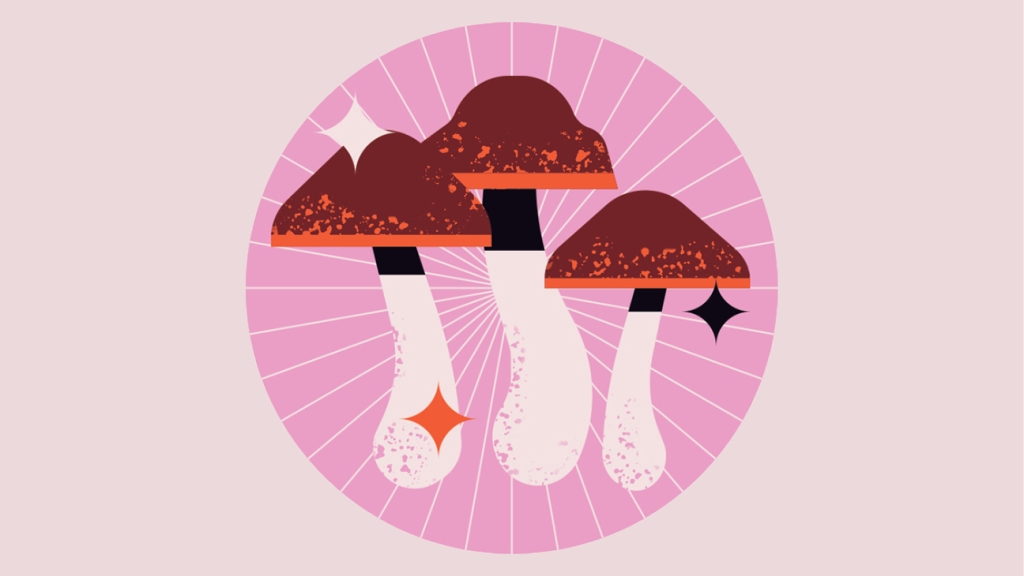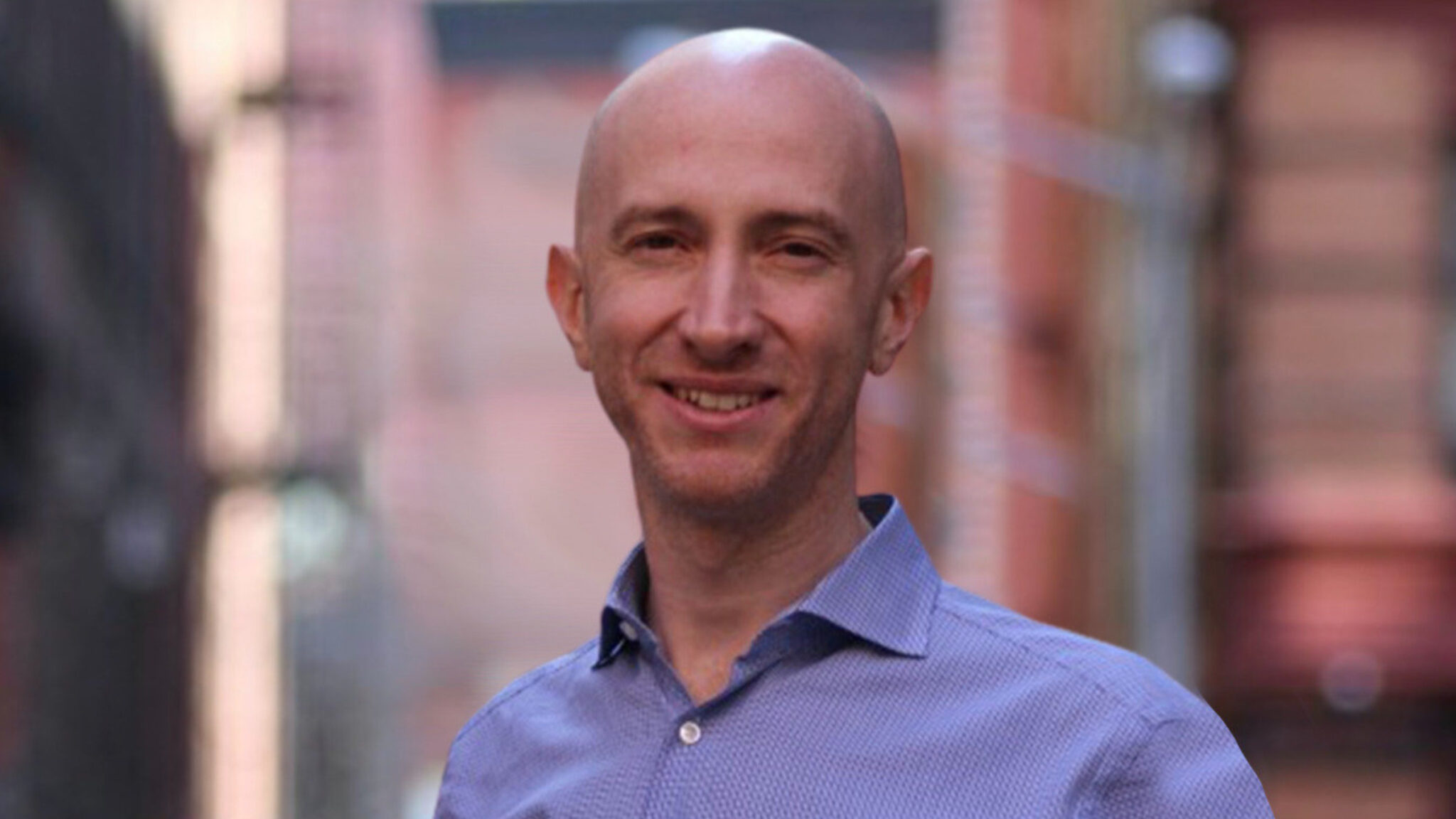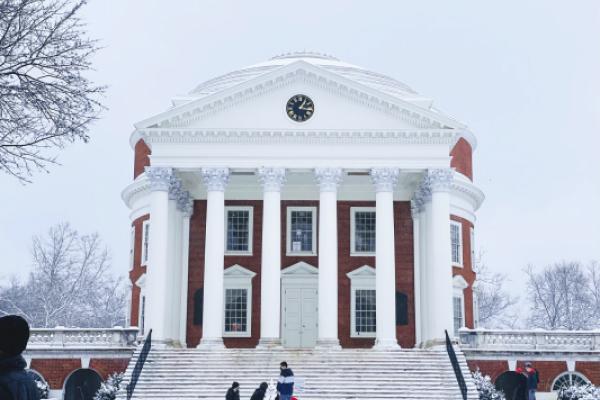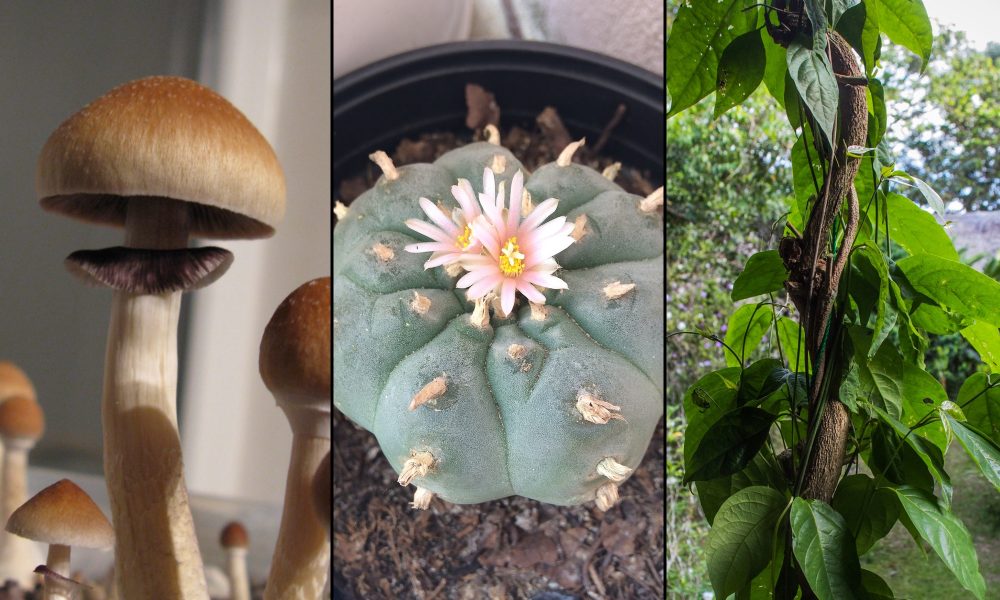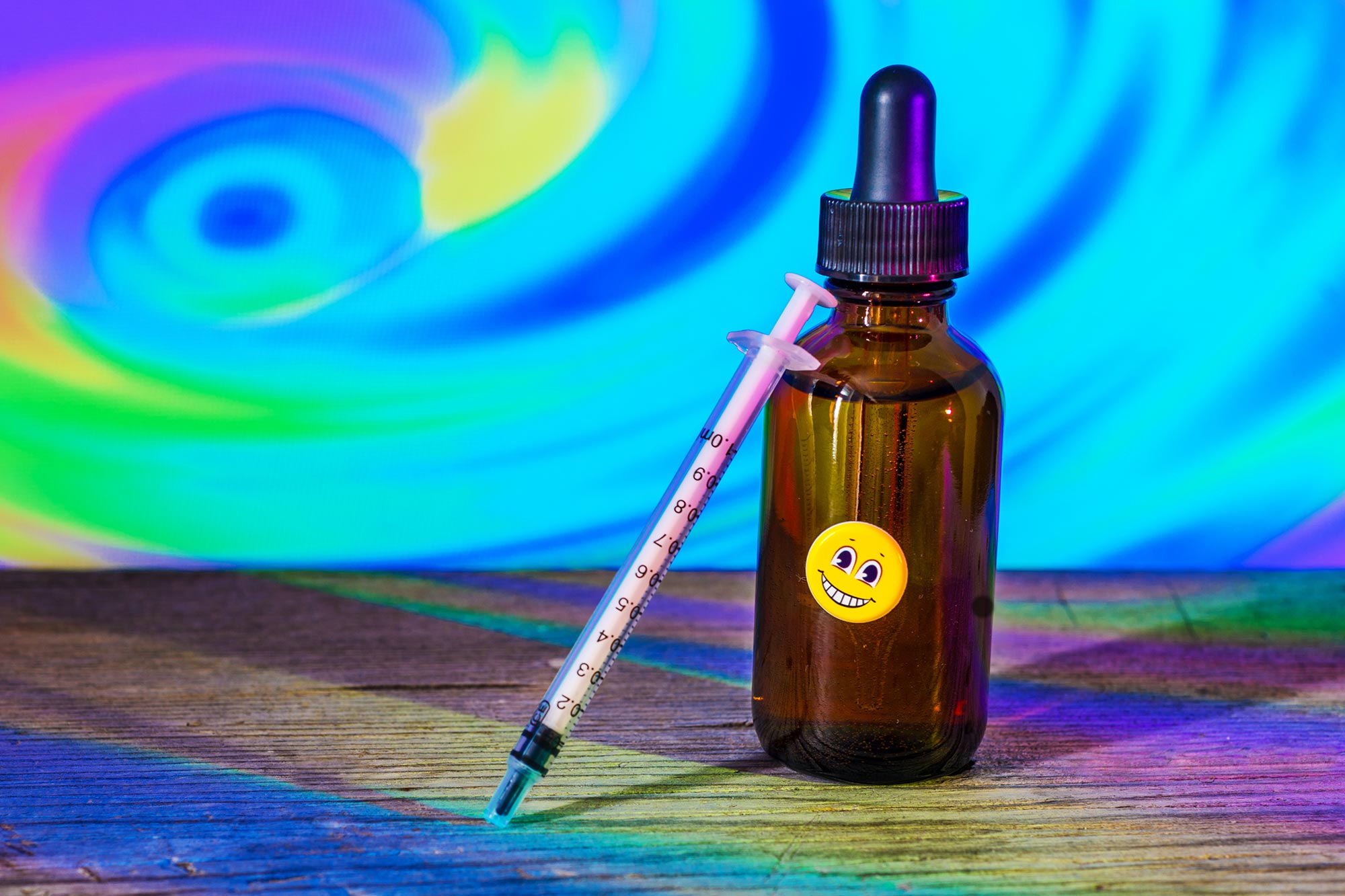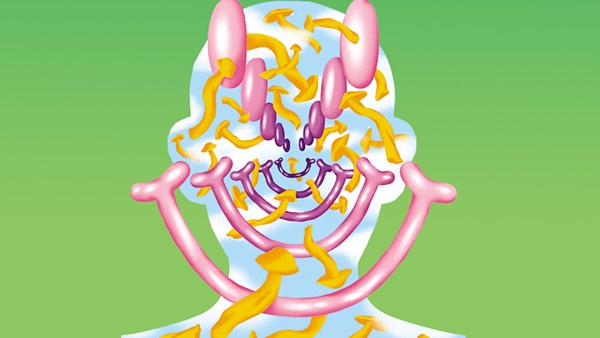Amid a push to legalize so-called “magic mushrooms” in California, research accelerates into their health benefits: “We’re talking about a non-psychedelic event. What you’re getting is mostly an opening of the mind.”
Continue readingPsychedelics biotech set to go public via SPAC — pushing IV form of psilocybin into PhI
Psychedelics biotech Eleusis has its eyes on an expansion, and it’s going the SPAC route to get it. The biotech announced earlier today that it’s teaming up with a SPAC born out of asset manager Silver Spike Capital to make Eleusis a public company. Once the deal goes through sometime
Continue readingVirginia Lawmakers Propose Decriminalizing Psilocybin And Other Psychedelics | Benzinga
Virginia lawmakers, Del. Dawn Adams (D), and Sen. Ghazala Hashmi (D) along with Sen. Jennifer Boysko (D)
Continue readingVirginia Could Decriminalize Psilocybin And Other Psychedelics With Newly Filed Bills
A top federal drug official says the “train has left the station” on psychedelics.
National Institute on Drug Abuse (NIDA) Director Nora Volkow said people are going to keep using substances such as psilocybin—especially as the reform movement expands and there’s increased attention being drawn to the potential therapeutic benefits—and so researchers and regulators will need to keep up.
The comments came at a psychedelics workshop Volkow’s agency cohosted with the National Institute of Mental Health (NIMH) last week.
The NIDA official said that, to an extent, it’s been overwhelming to address new drug trends in the psychedelics space. But at the same time, she sees “an incredible opportunity to also modify the way that we are doing things.”
“What is it that the [National Institutes of Health] can do to help accelerate research in this field so that we can truly understand what are the potentials, and ultimately the application, of interventions that are bought based on psychedelic drugs?” Volkow said.
The director separately told Marijuana Moment on Friday in an emailed statement that part of the challenge for the agency and researchers is the fact that psychedelics are strictly prohibited as Schedule I drugs under the federal Controlled Substances Act.
“Researchers must obtain a Schedule I registration which, unlike obtaining registrations for Schedule II substances (which include fentanyl, methamphetamine, and cocaine), is administratively challenging and time consuming,” she said. “This process may deter some scientists from conducting research on Schedule I drugs.”
“In response to concerns from researchers, NIDA is involved in interagency discussions to facilitate research on Schedule I substances,” Volkow said, adding that the agency is “pleased” the Drug Enforcement Administration recently announced plans to significantly increase the quota of certain psychedelic drugs to be produced for use in research.
“It will also be important to streamline the process of obtaining Schedule I registrations to further the science on these substances, including examining their therapeutic potential,” she said.
At Thursday’s event, the official talked about how recent, federally funded surveys showed that fewer college-aged adults are drinking alcohol and are instead opting for psychedelics and marijuana. She discussed the findings in an earlier interview with Marijuana Moment as well.
Don’t miss out on the @NIDAnews, @NIAAAnews, & @NIMHgov-sponsored virtual Workshop on Psychedelics as Therapeutics: Gaps, Challenges, and Opportunities, Jan. 12‒13, 2022. Learn more and register: https://t.co/S1zttkoYXq pic.twitter.com/C2Qrk6FN9a
— NIDAnews (@NIDAnews) January 10, 2022
“Let’s learn from history,” she said. “Let’s see what we have learned from the marijuana experience.”
While studies have found that marijuana use among young people has generally remained stable or decreased amid the legalization movement, there has been an increase in cannabis consumption among adults, she said. And “this is likely to happen [with psychedelics] as more and more attention is placed on these psychedelic drugs.”
“I think, to a certain extent, with all the attention that the psychedelic drugs have attracted, the train has left the station and that people are going to start to use it,” Volkow said. “People are going to start to use it whether [the Food and Drug Administration] approves or not.
There are numerous states and localities where psychedelics reform is being explored and pursued both legislatively and through ballot initiative processes.
On Wednesday—during the first part of the two-day federal event that saw nearly 4,000 registrants across 21 time zones—NIMH Director Joshua Gordon stressed that his agency has “been supporting research on psychedelics for some time.”
Tune in today and tomorrow for the @NIH workshop on Psychedelics as Therapeutics, which will examine findings on psychoplastogens for treating depression, post-traumatic stress, and substance and alcohol use disorders. https://t.co/Qzxte5xJt9
— Joshua A. Gordon (@NIMHDirector) January 12, 2022
“We can think of NIMH’s interests in studying psychedelics both in terms of proving that they work and also in terms of demonstrating the mechanism by which they work,” he said. “NIMH has a range of different funding opportunity announcements and other expressions that are priorities aimed at a mechanistic focus and mechanistic approach to drug development.”
Meanwhile, Volkow also made connections between psychedelics and the federal response to the coronavirus pandemic. She said, for example, that survey data showing increased use of psychedelics “may be a way that people are using to try to escape” the situation.
But she also drew a metaphor, saying that just as how the pandemic “forced” federal health officials to accelerate the development and approval of COVID-19 vaccines because of the “urgency of the situation,” one could argue that “actually there is an urgency to bring treatments [such as emerging psychedelic medicines] for people that are suffering from severe mental illness which can be devastating.”
But as Volkow has pointed out, the Schedule I classification of these substances under federal law inhibits such research and development.
The official has also repeatedly highlighted and criticized the racial disparities in drug criminalization enforcement overall.
Delaware Lawmakers File New Marijuana Legalization Bill With Key Equity Revisions
Psychedelic Drug From Magic Mushrooms – Psilocybin – Can Be Safely Administered With No Detrimental Effects in Healthy People
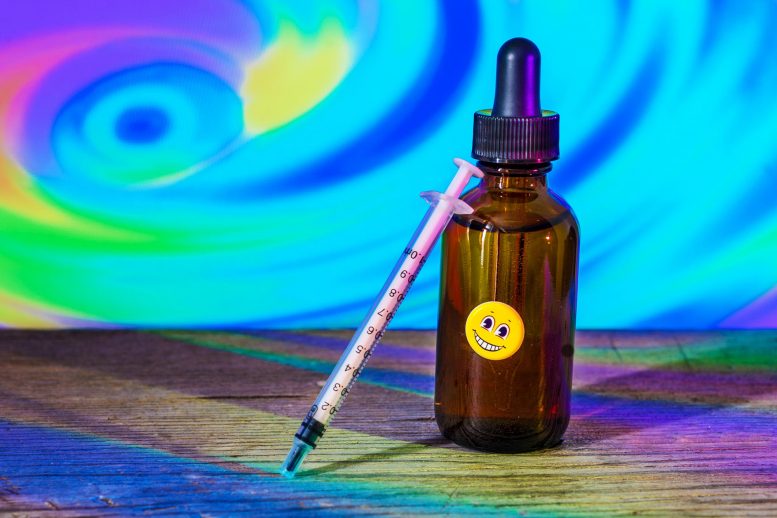
New research from the Institute of Psychiatry, Psychology, & Neuroscience (IoPPN) at King’s College London, in partnership with COMPASS Pathways, has established that psilocybin can be safely administered at doses of either 10mg or 25mg to up to six participants simultaneously.
The research, published in The Journal of Psychopharmacology, is an essential first step in demonstrating the safety and feasibility of psilocybin – a psychedelic drug isolated from the Psilocybe mushroom – for use within controlled settings alongside talking therapy as a potential treatment for a range of mental health conditions, including treatment-resistant depression (TRD) and PTSD
“>PTSD.
Current treatment options for these conditions are ineffective or partially effective for many people, resulting in a significant unmet need. Early research has indicated a potential for psilocybin therapy to treat these groups, but no trials have been undertaken at the scale needed for regulatory approval to make the therapy available.
The trial is the first of its kind to thoroughly investigate the simultaneous administration of psilocybin. 89 healthy participants with no recent (within 1 year) use of psilocybin were recruited. 60 individuals were randomly picked to receive either a 10mg or 25mg dose of psilocybin in a controlled environment. In addition, all participants were provided with one-to-one support from trained psychotherapists. The remaining 29 participants acted as the control group and received a placebo, also with psychological support.
Participants were closely monitored for six to eight hours following administration of psilocybin and then followed up for 12 weeks. During this time, they were assessed for a number of possible changes, including sustained attention, memory, and planning, as well as their ability to process emotions.
National Institute for Health Research Clinical Scientist Dr. James Rucker, the study’s lead author from King’s IoPPN and honorary consultant psychiatrist at South London and Maudsley NHS Foundation Trust said: “This rigorous study is an important first demonstration that the simultaneous administration of psilocybin can be explored further. If we think about how psilocybin therapy (if approved) may be delivered in the future, it’s important to demonstrate the feasibility and the safety of giving it to more than one person at the same time, so we can think about how we scale up the treatment. This therapy has promise for people living with serious mental health problems, like treatment-resistant depression (TRD) and PTSD. They can be extremely disabling, distressing, and disruptive, but current treatment options for these conditions are ineffective or partially effective for many people.”
Throughout the study, there were no instances of anyone withdrawing from the study due to an adverse event, and no consistent trends to suggest that either of the psilocybin doses had any short- or long-term detrimental effects on participants.
Professor Guy Goodwin, Chief Medical Officer, COMPASS Pathways, said: “This study was an early part of our clinical development program for COMP360 psilocybin therapy. It explored the safety and feasibility of simultaneous psilocybin administration, with 1:1 support, in healthy participants, and provided a strong foundation to which we have now added positive results from our phase IIb trial in 233 patients with TRD, and from our open-label study of patients taking SSRI antidepressants alongside psilocybin therapy. We are looking forward to finalizing plans for our phase III program, which we expect to begin in Q3 2022.”
The investigators have since completed Phase II of the study, which has explored the efficacy and safety of psilocybin in people living with TRD and PTSD, and are analyzing the data.
Reference: “The effects of psilocybin on cognitive and emotional functions in healthy participants: results from a phase 1, randomised, placebo-controlled trial involving simultaneous psilocybin administration and preparation” by James J Rucker, Lindsey Marwood, Riikka-Liisa J Ajantaival, Catherine Bird, Hans Eriksson, John Harrison, Molly Lennard-Jones, Sunil Mistry, Francesco Saldarini, Susan Stansfield, Sara J Tai, Sam Williams, Neil Weston, Ekaterina Malievskaia and Allan H Young, 4 January 2022, Journal of Psychopharmacology.
DOI: 10.1177/02698811211064720
Ketamine, Psilocybin and the Rise of Missouri Psychedelics
Inside the salt room, Scott Mickey flew above the bright expanse of his own consciousness. His eyes were closed. A weighted blanket pressed his body into a recliner. In his arm, an IV delivered a few dozen milligrams of ketamine to his bloodstream.
His mind was somewhere else.
“I ain’t gonna lie, I was very skeptical,” recalls Mickey, a 45-year-old business owner who runs a chain of head shops in rural Missouri. Before ketamine, the Rolla native had spent much of his life gripped by a deep social anxiety that made crowded indoor spaces, even a trip to the grocery store, intolerable to the point of breakdown.
He had gone to a psychiatrist. They prescribed him the antidepressant Xanax, but he says it felt like “wrapping your head in a blanket.” So, one day this past October, he went to a different doctor, one located in a compact strip mall opposite the Saint Louis Galleria in St. Louis.
Ketamine is undergoing something of a renaissance. First synthesized in 1962, the substance has been used for decades as a surgical anesthetic, and not just because of its ability to safely render a person unconscious. For reasons scientists are still studying, the introduction of ketamine releases the mind to dissociate — that is, to be blissfully unaware, in all sensation and memory, of the physical trauma happening to their body.
However, with smaller amounts of ketamine, a person can experience that disassociation without the amnesia. That experience, as shown in the growing body of scientific research and widening availability of treatment options, acts as a profoundly effective antidepressant.
But it’s not just ketamine that holds such promising possibilities for treatment. Currently, a combination of state and federal laws block patients from using an even more powerful line of psychedelics, substances that have long been used in indigenous rituals and which are well known to the crowd of self-experimenting “psychonauts” for their mind-expanding effects.
For Mickey, attending music festivals in his twenties had brought him into contact with hallucinogens like LSD and magic mushrooms, but it had been many years since he had taken a psychedelic trip. That day at the clinic in St. Louis, as the salt vapors flowed, he found himself settling into a comfortable chair and listening to the music coming from the wall speakers, the melody soft and meditative.
“I was sitting there, they started the IV, and I just got this little bit of a tiredness that came over me,” he says now. “It was like, ‘Oh, I could probably lay back and get comfortable.’ When I laid my head against the pillow, it was like a light switch. It was, boom, there I was, flying. And there was no fear to it.”
He remembers looking down at an endless landscape beneath him. He says, “I started thinking about my anxiety — why do I get uncomfortable in various situations? I flew close to the ground and saw this dark spot in the center of this snow-covered region. I instantly knew that it was either trauma or something that had happened in my life that created that inside of me.”
As easy as thinking, Mickey flew down to the dark spot, and “exchanged energy.” The spot turned light, and, he says, “as it happened, I would feel the release of this incredible weight.”
Today, he describes it as one of the most powerful sensations of his life. He was sold.
“Once I had tried it once, I was like, ‘Alright, I’ll take the package.'”
After decades of legal restrictions and fear mongering, Americans are finally coming around to the notion that psychedelics are legitimate medicine. Even as the law and science lag behind, people in Missouri like Scott Mickey are already embracing ketamine; and these aren’t hippies or followers of the sort of LSD utopia envisioned by Timothy Leary in the 1960s — these are simply people in pain.
During a recent visit to the Radiance Float + Wellness clinic in Richmond Heights, psychiatrist Dr. Zinia Thomas walks through a short hallway to the salt room, the same room in which Scott Mickey tuned in, dropped out and started flying through his mind. The back wall, built of rock salt bricks, is lit with cool blue lights. A flier on a table features a friendly message, “Enjoy your K-Cation,” beneath a photo showing a line of multicolored cottages on a perfect beachfront.
Thomas founded the clinic in 2017, one year before then-President Donald Trump signed the federal Right to Try Act that made some classifications of drugs, including ketamine, open to therapeutic use if patients had exhausted FDA-approved treatment options.
At first, Thomas says she considered ketamine treatments as an option of last resort. But two key events shaped her current stance that ketamine is for everyone.
First came Missouri’s legalization of medical cannabis. In 2020, Thomas began prescribing medical marijuana licenses to hundreds of patients across the state through virtual appointments. Quickly, she says, it became clear that people were seeking more substantial relief than even high-potency cannabis could offer.
“They wanted it to cure their depression, PTSD, their pain, migraines. They wanted it to cure everything,” she says. “People put so much hope in it, but this is just a plant.”
Thomas says she began suggesting ketamine as a possible treatment for her medical marijuana patients’ more serious health needs. Around the same time, the pandemic hit — and with it, the crush of isolation, job stress and the ever-present tragedy of the rising death toll. She believes the pandemic inflamed a mental-health crisis that was already burning out of control.
“Even high-functioning people have suffered so much loss in the pandemic,” she notes. “I just thought, ‘Why should you have to fail other antidepressants before trying something like ketamine?'”
